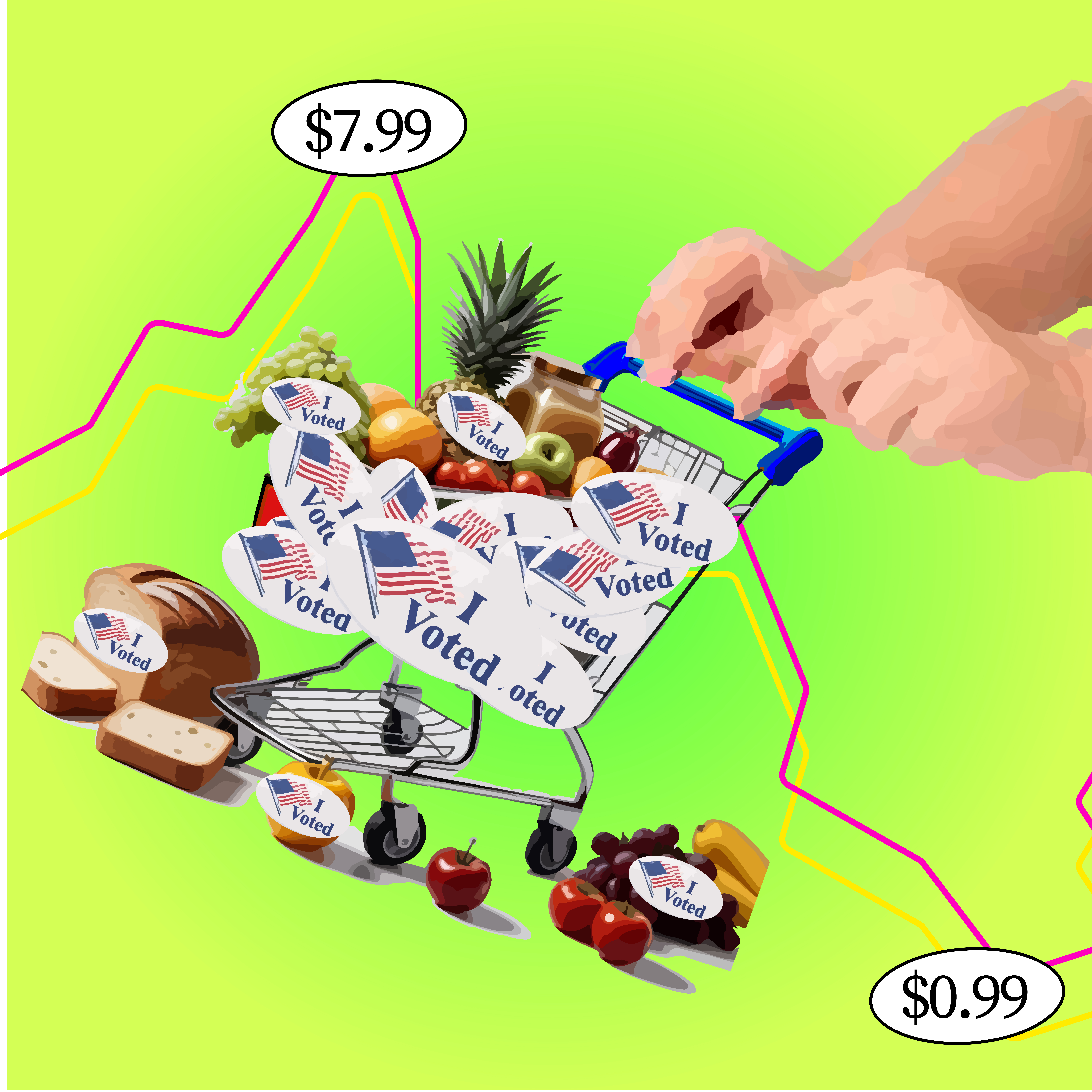This story is syndicated from The Daily Pennsylvanian, the newspaper of the University of Pennsylvania. The original version of the story ran here.
Penn professors and polling experts pointed to voter concerns with the economy and inflation as key factors in the victory of 1968 Wharton graduate Donald Trump.
The DP spoke with four experts affiliated with Penn Carey Law School, the Penn Political Science department and Penn’s Program on Opinion Research and Election Studies. In their interviews, the professors pointed to growing dissatisfaction among rural voters as a contributor to Trump’s election and noted the significant uncertainty surrounding what his second presidency will involve.

Professor of Law and Philosophy Claire Finkelstein wrote to the DP that she had “privately predicted” Trump’s election and a Republican controlled Senate about six months ago, even though the sweeping Republican win came as a shock to many students across campus. She explained that pro-Trump sentiment “is everywhere” outside of Philadelphia and said that the Democrats failed to cater to “the average rural voter.”
“A growing sentiment during the Obama years, and continuing with Biden, was that the Democratic party has been hijacked by individuals with a far-left agenda, and [people] are sick of it,” Finkelstein added.
She also explained that many University students are focused on progressive causes and “out of touch” with middle class economic and labor concerns, which is why Trump’s popularity seemed “mysterious” to many college aged voters.
Marc Trussler, the director of data sciences at Penn’s Program on Opinion Research and Election Studies, pointed to economic dissatisfaction and high inflation as key contributors to Trump’s victory.
“What we saw last night was people making a strong statement about how they feel the economy is going and what they see in their checkbooks,” Trussler said.
Political Science professor Matthew Levendusky echoed Trussler’s sentiments, asserting that Trump’s election could be explained by a widespread concern over the state of the economy — particularly inflation. He also said that President Joe Biden’s unpopularity played a role in Harris’ defeat, despite Biden himself not being on the ticket.
“[Voters] saw Harris as a stand in for the Biden-Harris administration,” Levendusky said. “She argued that she represented a change, [which] was something hard to pull off when you’re a part of the incumbent administration, and you know, she lost because of it.”
Trussler also said that issues pertaining to inflation were not unique to the U.S., but were prevalent globally in the wake of “necessary” COVID-19 relief measures and could be observed in most other Western countries.
“[COVID-19] relief payments and various methods that were needed to keep employment high led to higher inflation across the Western world, and that may have been necessary at the time, but the governments that put those in place are now kind of paying the political costs of that,” he said.
Political Science professor Daniel Hopkins told the DP that he both did and did not expect the election’s results. He agreed with Trussler that incumbent governments are “struggling” internationally in part due to inflation and the economy — but still deemed the election as “undeniably unprecedented” given Trump’s involvement in the Jan. 6, 2021 Capitol riot and his status as a convicted felon.
Hopkins also commented on Harris’ unique position as a Democratic presidential nominee after President Joe Biden’s unprecedented concession of the 2024 Democratic nomination.
“We know that Kamala Harris ran in 2020. [She was] very much tacked to the left, and took a number of positions that came back to haunt her in this election cycle,” he said. “I also think that any Democrat would have faced an uphill struggle given both inflation and Biden’s relatively low levels of popularity.”
Finkelstein, reflecting on the significance of Vice President Harris’ defeat, the Republican control of the Senate, and what she predicts will be a Republican-controlled house, said that it “sets the stage” for Republican reforms “on a level that the country has not seen in the past 50 years.”
She pointed to abortion bans, immigration restrictions and crackdowns on undocumented residents as likely reform focuses under the Trump administration. She also raised the possibility of military misuse by domestic law enforcement and noted the likelihood of the U.S. withdrawing from the North American Treaty Alliance – the political and military alliance mandating collective defense between more than 30 European and North American countries.
Trussler said that the country now faces questions and uncertainty about what the next four years will look like, including both Trump’s impending presidency and the Democrats’ plan of action when it comes to rebuilding the party.
“What is the response of Trumpism going to look like? Is that going to be different than the 2016 to 2020 period?” he asked. “What kind of message for the future is the Democratic party going to put forward going from now on?”



